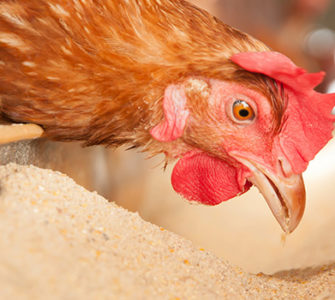Should antibiotics be used to prevent disease in poultry?
Using antibiotics to prevent — not just treat or control — certain diseases of poultry is a sensible, responsible and ethical practice, according to three veterinarians featured on an industry panel discussion.
“I think this disease prevention claim, it’s critical that we maintain it — especially when we’re talking about having veterinary oversight,” said Randy Singer of the University of Minnesota. “The veterinarian understands the disease process, knows when this population of animals is likely to break with a specific disease.”
William Flynn of FDA added, “I think there may be some misconceptions when we talk about disease prevention — that…drugs and antibiotics are being put in feeds…to prevent whatever disease comes along. That’s not at all what we’re talking about here. We wouldn’t consider that being a judicious use of the drug.”
Flynn said that when a veterinarian believes a specific group of animals is at risk of being exposed to a particular disease, it’s warranted to administer the antibiotic “in a preventive modality” to thwart the outbreak. “There’s information that goes into…that conservative decision to use the drug, and I think that’s one of the values that having a veterinarian involved,” he added.
Don Ritter of Mountaire Farms, Millsboro, Delaware, provided a practicing veterinarian’s perspective. “There are certain diseases — specific diseases in the chicken intestine — that almost require antibiotics to prevent and control,” he explained. “If you wait until your flock is ill and illness occurs and mortality occurs, it’s kind of too little too late at that point. You’re much better off, especially earlier in a bird’s life, to strategically use targeted antibiotics therapies to prevent gut problems.”
Watch the video.
Posted on June 19, 2014
















